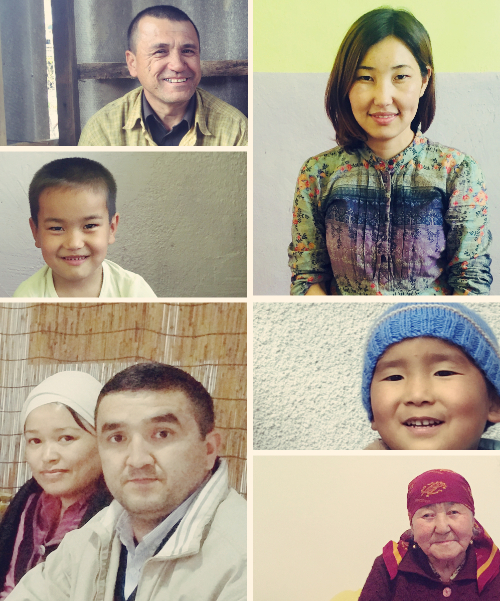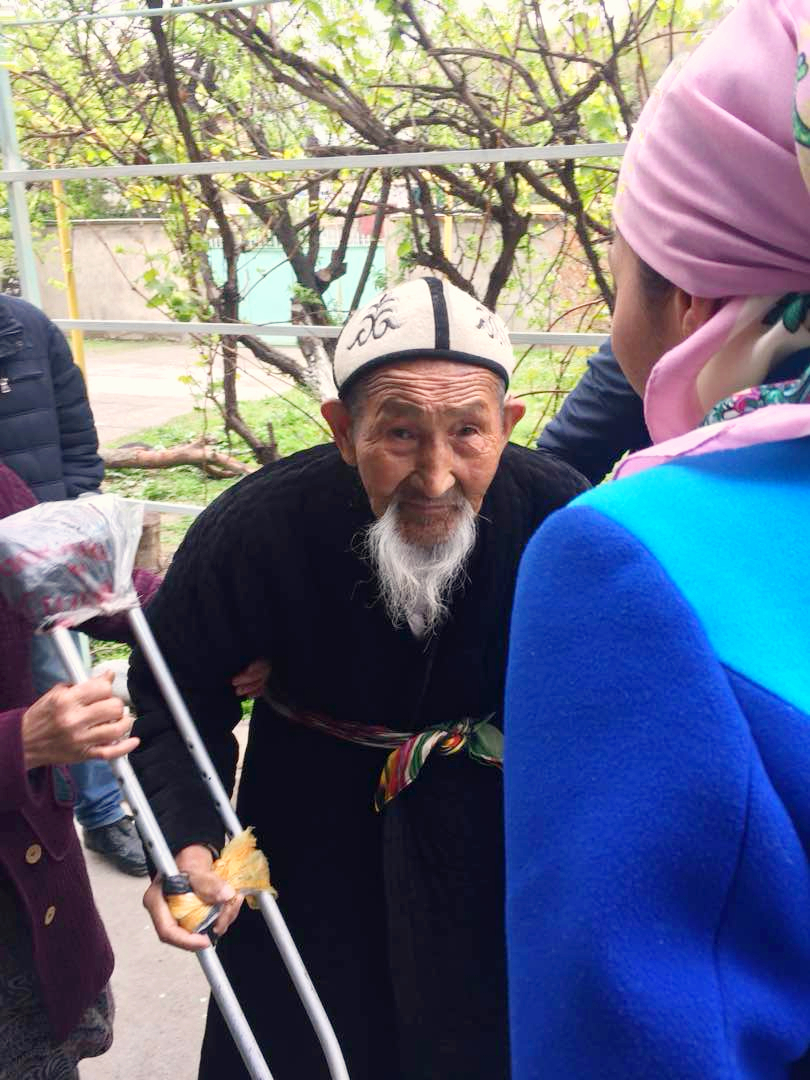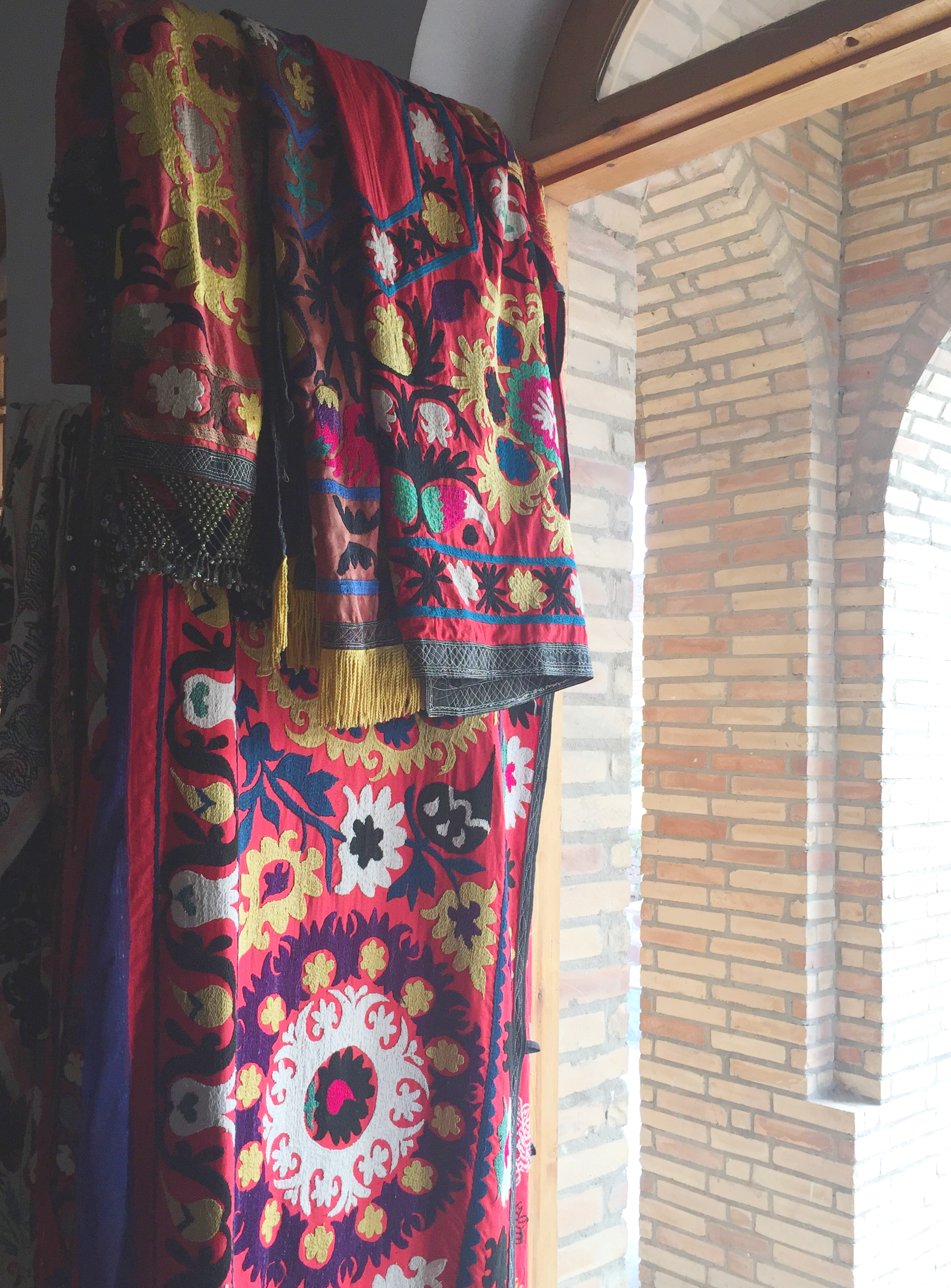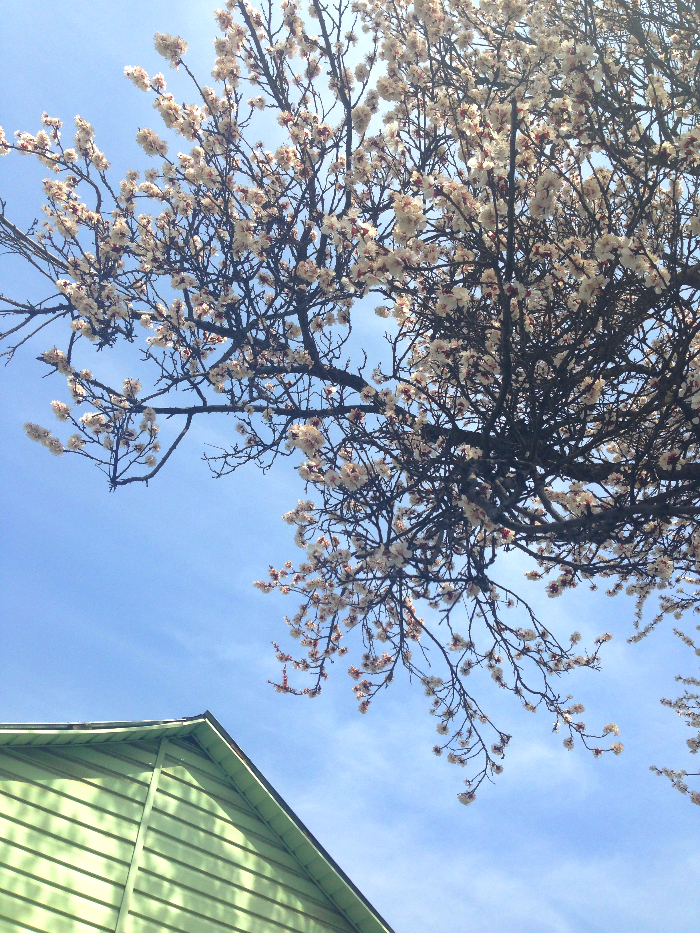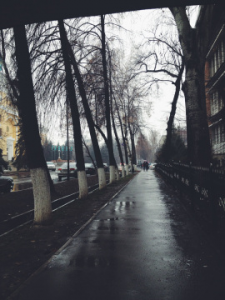She was an ordinary woman, a Russian-speaking Korean lady with a wide smile and a pleasant face. She had on glasses that were a bit darker than the usual clear lenses, and a robe that was worn from many years of housework. I said hello and kissed her in greeting.
She invited me to the table and put hot blinchiki, fresh off the skillet, in front of me. As she poured me a cup of tea, I started to notice that there was something different about this woman. I watched her move from place to place, confident in her surroundings. A few awkward bumps into things gave it away, and it finally dawned on me.
This woman was completely blind.
It was the time of white blanketing the earth as far as the eye could see. The time of Jack Frost decorating every window, and sleds being tugged and pulled by mothers and fathers, brisk in their attempts to transport children from place to place. Smoke from chimneys, houses and businesses filled the freezing air as white puffs of breath came out from every passerby. The streets were dotted with animal furs, draped across women’s shoulders, a mixture of bitter cold and warmth that brought about an aura of wonder. Winter wonder.
But it was more than the dancing snowflakes and hot tea. The wonder was deeper…
A wonder that caught my breath, their story.
It was my second trip to their house, this family that passed through thick and thin. I knew so little of them. Yet their acceptance and love shined bright, and I was no stranger in their house. They offered me a place to stay and their help around the city. Yet what I took most of was their love. Love for Him, the One who gave it.
They say you never know what to expect in life. You get married, you live, you love. But beyond those words stands reality: the unexpected. He took her as his wife when she was already blind. Along with that, he took criticism and unacceptance from others, responsibility and another life from her. He took the womanly duties, pampering and feeding the children, shopping and cleaning house. Braiding little heads and buying toy cars, teaching to read and write. He took the manly duties, providing bread for the family, building house, fixing cars. And also, he took the lead. He built the family foundation on Christ.
But not right away.
Oh, she suffered. Oh, how they suffered! A few years into marriage, he went down. Deeper and deeper into another world, one that consisted of endless needles and highs. He took everything with him. His house, his car, his job. No time passed before it was all gone. He lost everything. His children would look him in the eyes and ask to play, while his heart felt nothing but the need to continue, just another dose.
And through it all, she stood by his side. She didn’t complain about her handicap. Not once did she let the dark truth out to their family. No one knew of the terrible drugs that sucked away everything: money, job, life. She was a Christian by then, and her faith, tested like never before, shined on. Oh, there were days of hopeless cries and endless pain. There was frustration as the thread of patience grew thin. She stood by helplessly as he wasted away, weak and thin and scared. She listened to the cries of her hungry children, loud and demanding. And she could do nothing. She prayed on.
Seven years of hospital visits, psychiatric units, and dark days later, the moment arrived. HE is faithful, no matter our unfaithfulness. HIS promise beamed in the tear-stained face of a man beaten by life and near-death, a man who went through the valley of darkness and came out into the light. A man who had nothing— gained everything as he bent his knees and laid his heart into the hands of his Creator. Hands that had been waiting for a long, long time…
Life turned around. Happiness appeared, not in material wealth. Hearts that were empty now overflowed with a new love, a purpose to life. Truths came out and the past opened, serving its purpose for the good of those who needed it. Scrambling to rebuild life, he started by investing into a sewing machine. It was something he could do, something he did well. Loans, money borrowed and building rents were searched out everywhere. Somehow, God provided. He started out quite small, a few neighbors with a needle and thread. A few square meters in the market, a few good customers, and a few God-sent people who marketed their product to different countries proved God’s promise. “I will never leave you…”

Now, he sits there, the director of a leading dress pant brand in Asia that exports to other countries around the globe. He responds wisely to my questions, careful not to take any glory for himself. They know him as the man who takes everyone, the low ones shunned by society. His factory workers consist of locals, handicaps, and people with a past. Every morning begins with devotions and prayer, and many of the unbelievers have become a part of the church over this time. He is a servant leader there in his factory, strong in his will to help and obedient to the Lord’s calling.
She stands beside him, a rose in a bushel of thorns. Her weakness is her strength as she lives and breathes and loves and sacrifices. She’s learned everything through the years. Her cooking is hard to beat, her house spotless. Her health heavy, she lives for others. She brings an aura of happiness wherever she goes. She laughs and lives fully, cheerful and happy and blessed. She’s gained much over the years; thus, gives so much more.
The family was rebuilt, rebuilt on Christ. Yes, he is ill now. “Sowing what I reaped”, he said. But it doesn’t stop him from getting up each morning with purpose, ready to fight the good battle of faith. They wait in excitement for the first grandson, praying that God gives enough health to see the bundle of joy.
We left their house a week later, our hearts filled in a way we didn’t know before. A wonder that was hard to describe, lessons learned in a week that took years to compile.
Once, a man close to Jesus, an apostle, had a vision. The Lord opened to him what He hadn’t to anyone before. Oh, the promises He showed and the words He said!
“Behold, I make all things new.” Revelation 21:5
Today, as before, the promise stands true. He is the Creator. He creates. And white as the snow that piled high, the snow that blinded me as I looked around when it first fell, fresh and new.
So we must allow Him to create the new.
Published: 02/10/2014
